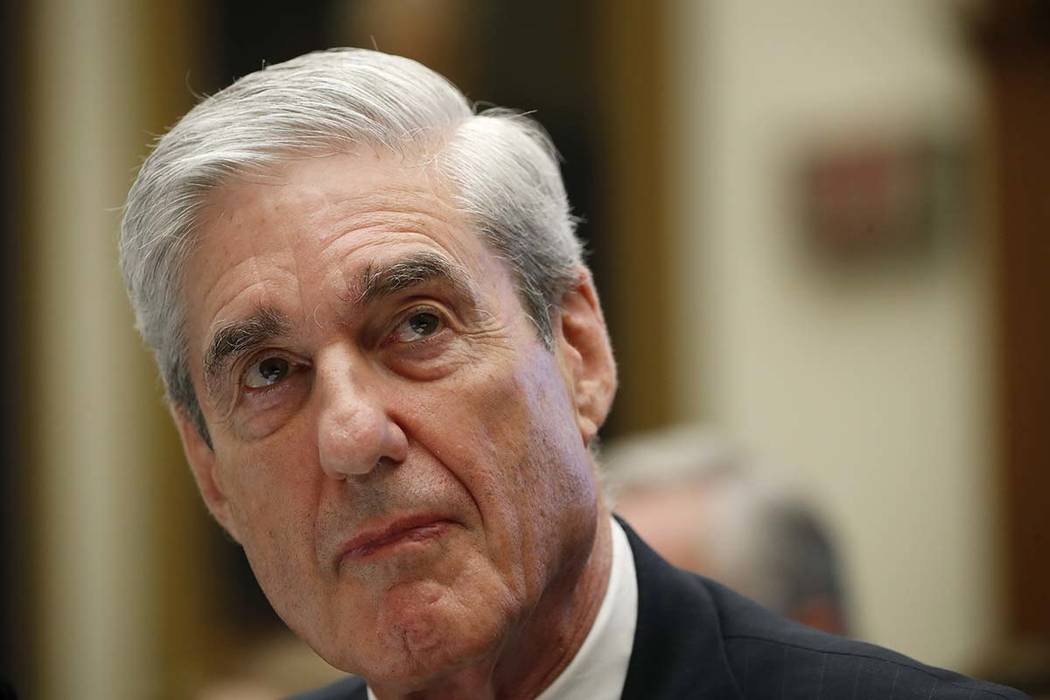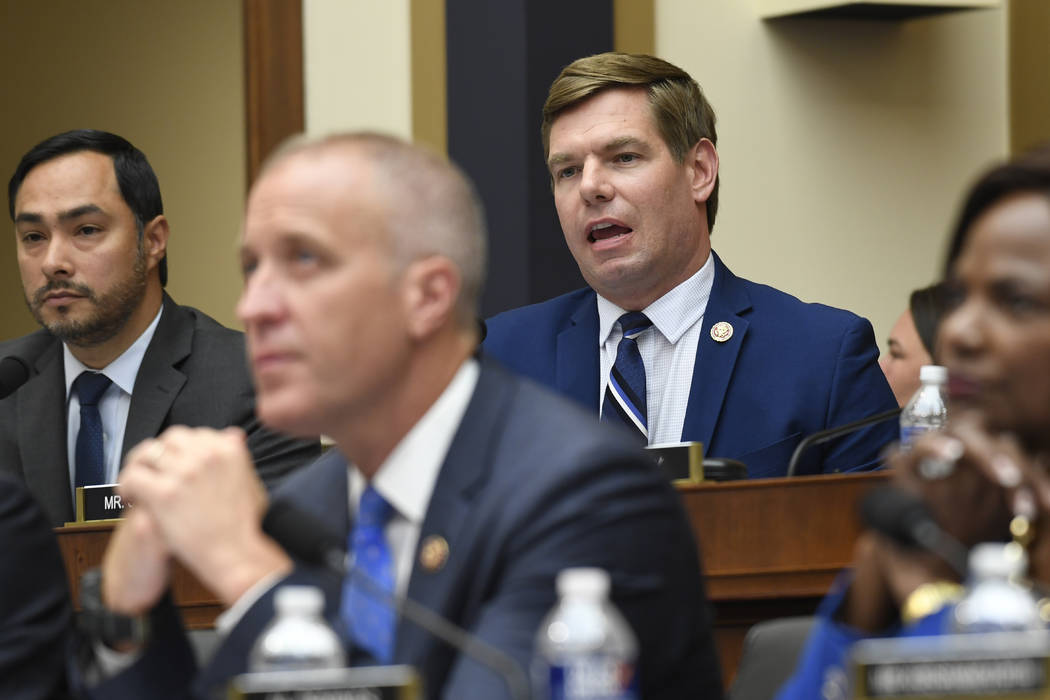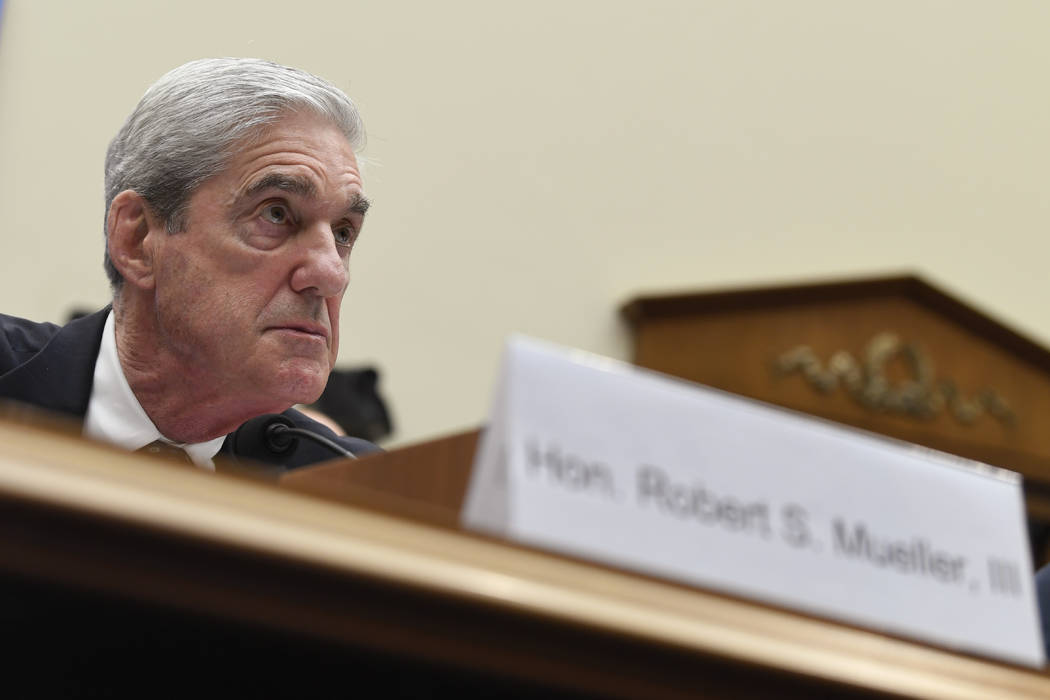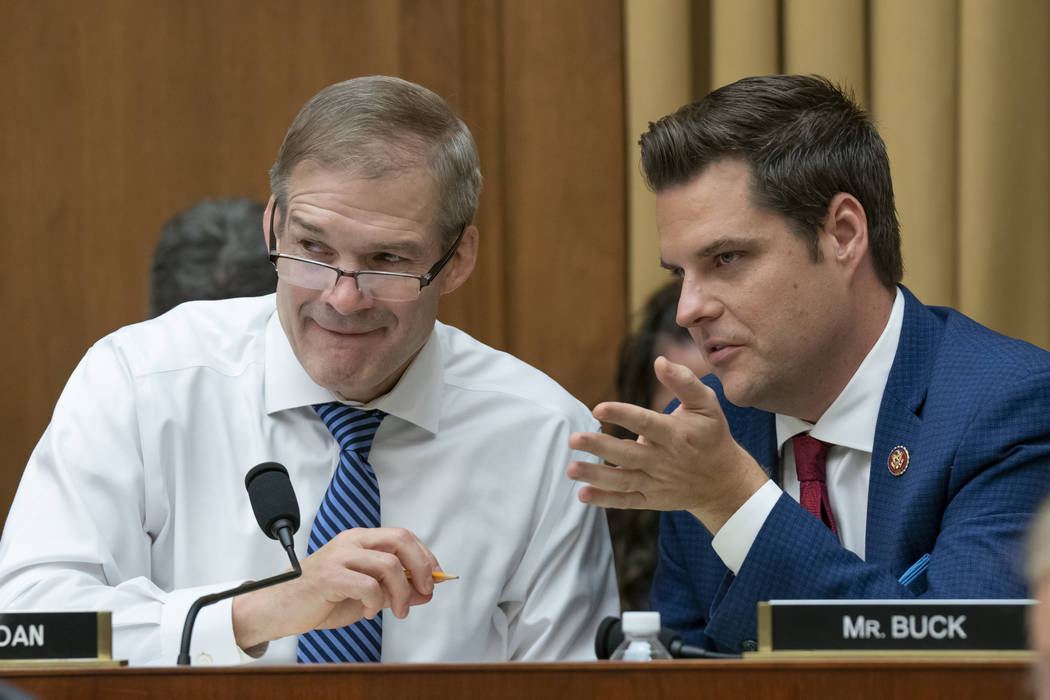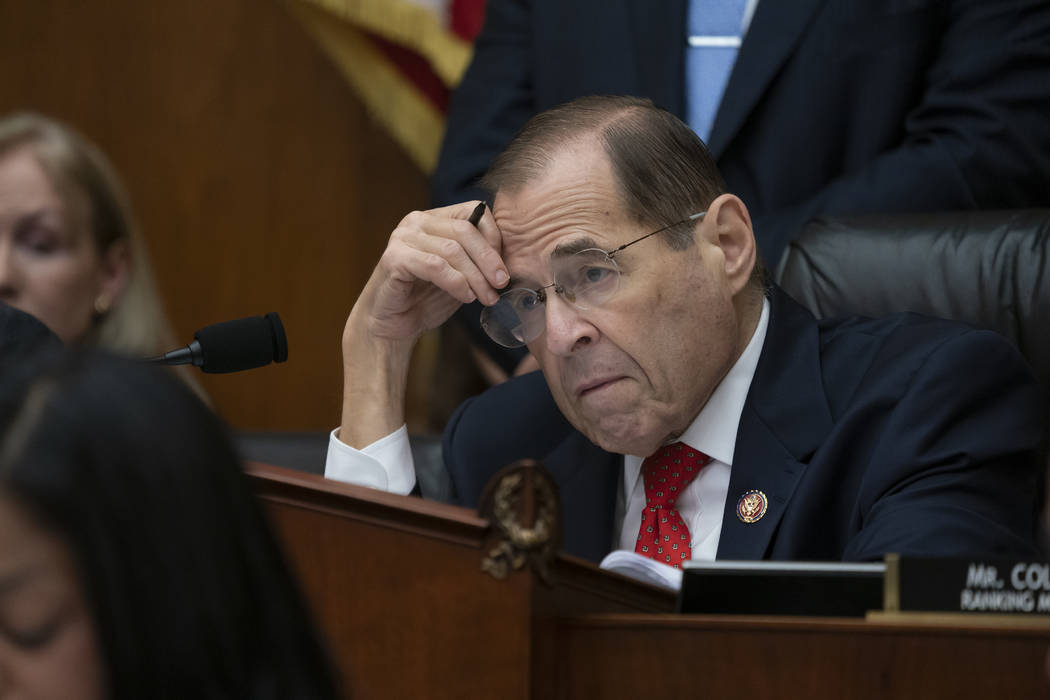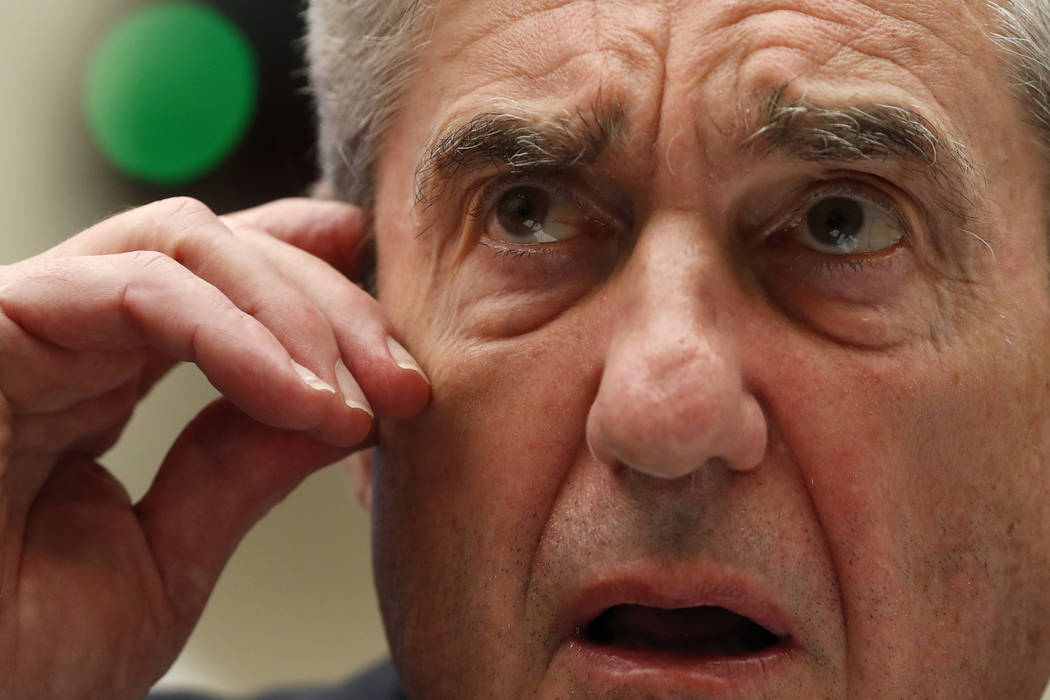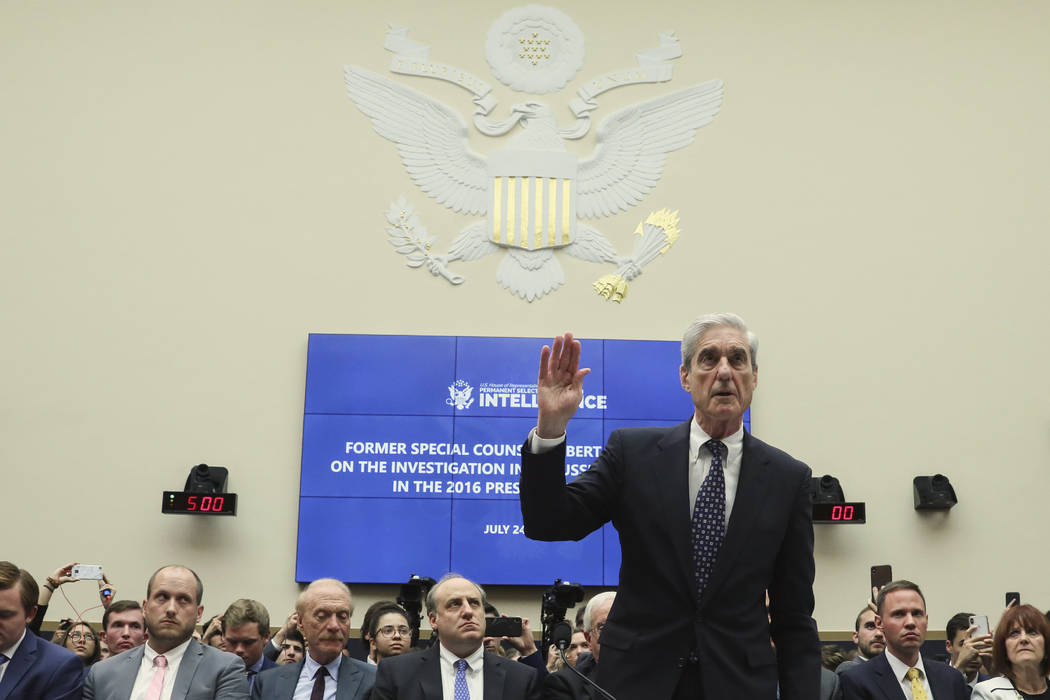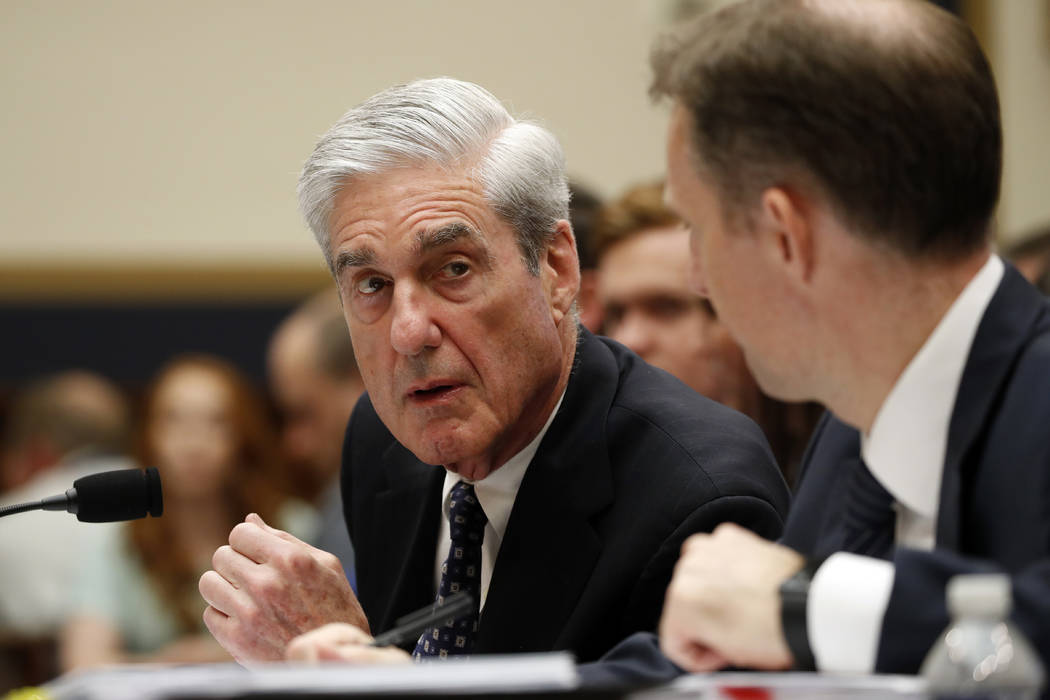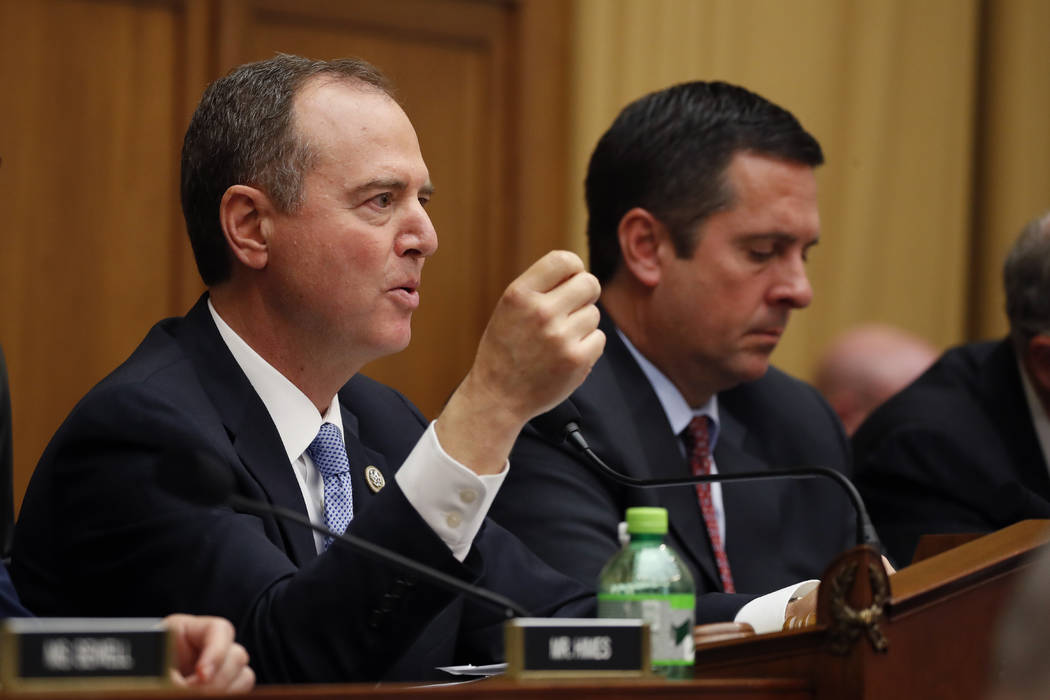Mueller denies exonerating Trump
WASHINGTON — Former special counsel Robert Mueller defended his investigation into Russian meddling in the 2016 election before two congressional committees Wednesday, pointedly contradicting President Donald Trump’s repeated assertions that he’d been totally exonerated on obstruction of justice charges.
Asked by House Judiciary Chairman Jerry Nadler, D-N.Y., if Mueller had exonerated Trump in the exhaustive 448-page investigative report, the former special counsel said simply, “No.”
Despite documenting several instances where Trump allegedly tried to hinder the investigation, Mueller told lawmakers he did not charge the president with obstruction of justice, due to Justice Department rules and policy against indicting a sitting president.
“Based on Justice Department policy and principles of fairness, we would not make a determination of whether the president committed a crime,” Mueller said. “That was our decision then and that is our determination now.”
Mueller, 74, stayed close to the report, which found Russian attempts to attack the 2016 presidential election and sway the outcome for Trump over Democratic rival Hillary Clinton.
Mueller’s report said investigators broadened the Russian meddling probe when evidence emerged that Trump was asking aides and former campaign officials to lie or deceive the special counsel in an attempt to obstruct the 22-month investigation.
Six former advisers or campaign aides were indicted or pleaded guilty to charges stemming from the probe.
Russians wanted Trump
A former FBI director, Mueller said the evidence was clear that the Russians acted in a “sweeping and systematic fashion.”
Intelligence Committee Chairman Adam Schiff, D-Calif., asserted the Russians sought to sway the election for Trump in exchange for relief from U.S. sanctions. Mueller didn’t contest Schiff’s assertion that Trump was motivated to accept Russian assistance in the election in order to potentially develop a lucrative Trump Tower project in Moscow.
“Your investigation determined that the Trump campaign — including Trump himself — knew that a foreign power was intervening in our election and welcomed it, built Russian meddling into their strategy, and used it,” Schiff maintained.
But Republicans described Mueller’s halting responses and his failed recollection of some facts as a disaster for Democrats seeking to gather material from the back-to-back hearings as fuel for impeachment proceedings.
But those efforts largely fell flat as Mueller responded with clipped answers to questions.
Republicans, meanwhile, challenged the methods and motives used by the special counsel and the conduct of investigators.
Rep. Devin Nunes, R-Calif., the ranking Republican on the panel, called the hearing the “last gasp of the Russian collusion conspiracy” peddled by Democrats.
“This hearing is political theater,” Nunes said.
White House spokeswoman Stephanie Grisham called the Mueller testimony “an epic embarrassment for the Democrats.”
Mueller refused to answer some Republican inquiries on topics not contained in the report, those that remain under investigation or were redacted from the publicly-released report.
The former special counsel also noted Trump refused to meet with investigators, although he did answer written questions pertaining to the Russian meddling portion of the probe. (Mueller, under questioning, acknowledged those written answers were “generally” not truthful.)
Attacking the investigators
In an attempt to show political bias, Rep. Louie Gohmert, R-Texas, recounted particularly damning emails between FBI counterintelligence official Peter Strzok and bureau lawyer Lisa Page, who both worked on the special counsel investigation and carried on an extramartial affair. Their text messages betrayed their concern that Trump could win the presidency.
Gohmert said Mueller didn’t act swiftly enough to move the two people from the investigation once the emails detailed their disdain for Trump.
“You hired a bunch of people who didn’t like the president,” Gohmert charged.
Mueller also was grilled by Rep. Jim Jordan, R-Ohio, about the use of Foreign Intelligence Surveillance Act warrants on two Trump campaign aides. That has prompted a separate Justice Department investigation into unlawful spying on American citizens.
But Mueller said that that event took place before he was appointed by then-Attorney General Jeff Sessions to serve as special counsel. Nunes noted the last issuance of a FISA warrant on one campaign aide was made while Mueller served.
The televised hearings marked the 89th time that Mueller has appeared before Congress, but the first since he served as special counsel charged with investigating Russian meddling in the 2016.
Mueller expanded the investigation when special counsel investigators found that Trump asked former White House counsel Don McGahn to fire Mueller to end the investigation.
“This is the end of my presidency. I’m f——d,” Trump told aides when he learned the special counsel had been appointed. McGahn, however, refused to fire Mueller and even contemplated resigning rather than carrying out the president’s wishes.
When the New York Times later wrote about Trump’s attempt to end the investigation by firing Mueller, Trump ordered McGahn to deny the story as “Fake News.”
Witch hunting denied
Trump has repeatedly mischaracterized the obstruction finding in the report, saying the report offered him “complete and total exoneration.” Even as Mueller was preparing to testify Wednesday, Trump was tweeting about Mueller’s much-anticipated appearance from the White House.
“The Greatest Witch Hunt in U.S. History, by far!” Trump said on Twitter.
Mueller, however, told the Judiciary Committee his investigation was not a witch hunt.
Trump also implied on Twitter that Mueller was motivated by his failure to be appointed to serve another stint as FBI director. Mueller denied that, too.
Nadler has said he will open an impeachment inquiry into whether the president’s actions warrant such congressional action.
About a third of the House Democratic Caucus favors impeachment, but House Speaker Nancy Pelosi, D-Calif., remains cautious about beginning a partisan effort in the House likely to die in the Republican-controlled Senate.
Mueller refused even to address the question of impeachment, again leaving the decision to Congress.
“I’m not going to talk about that today,” Mueller told Rep. Mike Johnson, R-La.
In his report, Mueller outlined the instances of obstruction in detail but left for Congress to determine whether to pursue the investigation and charges against the president.
The hearings produced no bombshells, one longtime observer said.
“Almost everyone already knows exactly where they stand on Donald Trump, and they hold these views fiercely,” said Larry Sabato with the University of Virginia Center for Politics. “The voters will decide Trump’s fate in November 2020.”
Contact Gary Martin at gmartin@reviewjournal.com or 202-662-7390. Follow @garymartindc on Twitter.



